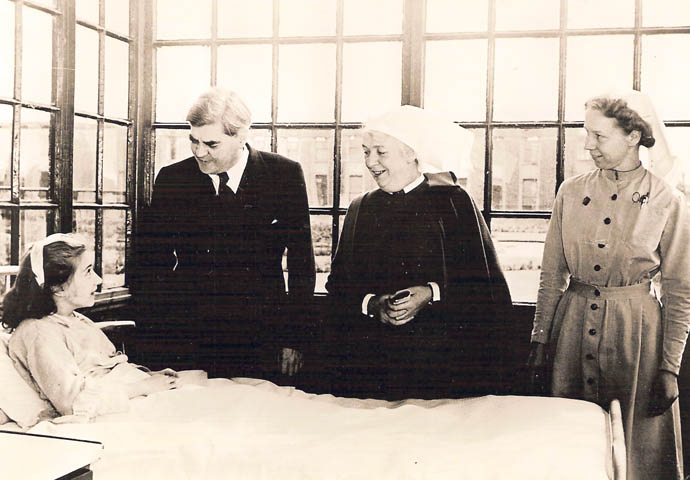More history of nurses available
Friday, 13th August 2021

Aneurin Bevan visits a ward on the NHS opening day in 1948
• IN response to the August 6 letter from Róisín Ní Ċurráin (Irish nurses are being written out of NHS history, August 6), may I point out that many of the Irish experiences she describes run parallel to those people of African descent.
Like the Irish nurses, Caribbean nurses were certainly needed for the National Health Service, and were recruited in the same way.
Many Caribbeans and Africans also fought in both world wars, not only as soldiers and pilots, but the many merchant seamen keeping Britain supplied with food and other necessaries ran the gauntlet of German submarines, which made supply ships a target.
Like the nurses you referred to, Caribbean and African nurses (and doctors) were present in Britain before the NHS began.
People of African descent were also ignored in many areas of TV for a long time, as well as anyone who spoke with a regional accent.
The idea that a statue to Commonwealth nurses and midwives “could be construed as suggesting that the Irish could not birth their own children” is very strange and is really asking the question “Why not us instead?”
And the answer is that the Commonwealth nurses have also been left out, as the writer’s unawareness of their contribution proves.
Both Ireland and the Caribbean suffered colonisation and were exploited by the British, but there are two important differences for the Commonwealth areas.
First, the Americas were populated with enslaved people, taken away from their families, and bought and sold for enormous profit and big estates by European slaveholders.
Secondly, Irish nurses working in Britain, despite prejudices against the Irish, were not subjected, in the course of their work, to patients or patients’ families telling them “not to touch with your black hands” and other gross racist remarks, or casual assumptions that they could not be properly qualified. But nurses persisted in doing their best for their patients all the same.
The reason a statue for the Commonwealth nurses and midwives is about to be erected is because a charity devoted to remembering all sorts of contributions to this country by persons of African descent has been supported by its community, raising funds with much difficulty over an extended period of time.
There is also a book to be published, the central part of which is accounts by the nurses themselves of their experiences. They have learned the lesson that if one does not want to be written out of history, the answer is to record the first-hand experiences within the community; because sadly, in Britain at this time, nobody else is going to do it.
I am not Caribbean myself. My heritage is English, Scottish, and Irish (migrating from Dublin to England in the years of the potato famine). I also know well a Caribbean nurse and an Irish one, and there have been several nurses in my family, the first training in the 1860s.
We need to support each other and I, for one, would be interested to learn about the first-hand experiences of the Irish nurses.
JOSEPHINE BEATON, E17